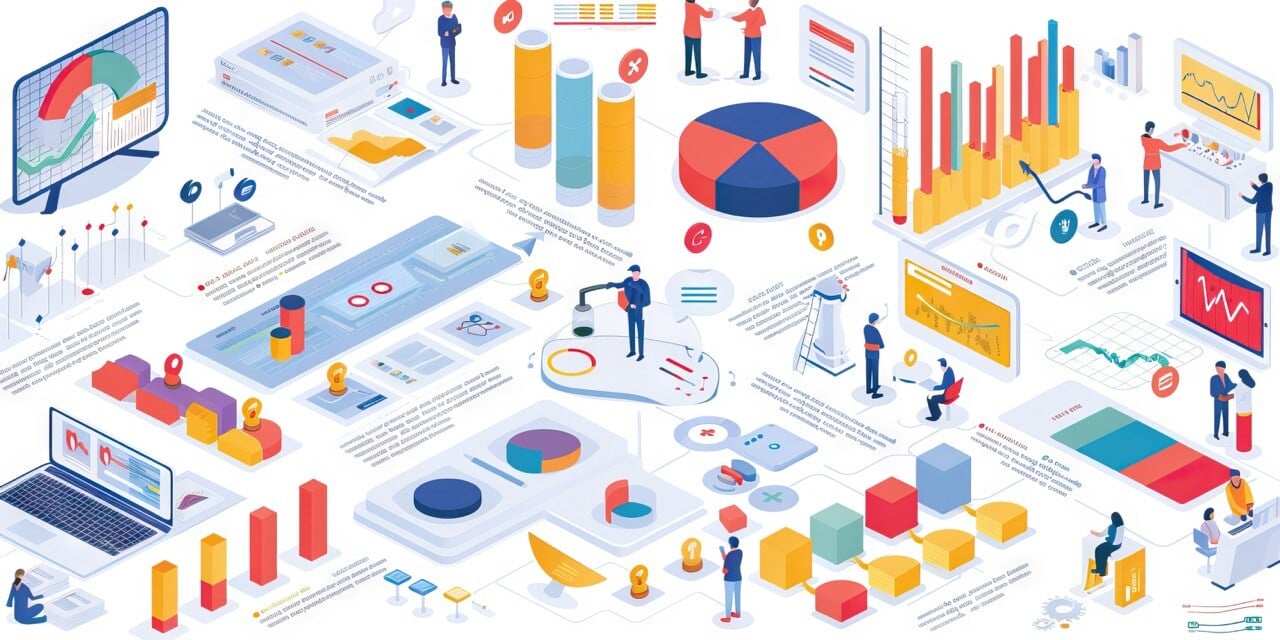Healthcare Content Marketing Guide: 2025 Patient Engagement Trends
In 2025, the importance of healthcare content marketing is shifting dramatically. Digital platforms are not just assets; they are vital tools that...
10 min read
Stephanie Unterweger : Dec 28, 2024 6:39:34 PM
![10 Best Healthcare CRM Software Solutions for 2025 [Comparison]](https://blog.brandsatplayllc.com/hubfs/AI-Generated%20Media/Images/improving%20efficiency%20and%20workflows.jpeg)
Healthcare organizations face increasing pressure to deliver personalized care while managing complex patient relationships at scale. In 2025, modern Customer Relationship Management (CRM) and marketing automation software have become essential tools for healthcare providers seeking to enhance patient engagement, streamline communication, and build sustainable growth through more innovative lead-generation strategies. As practices and healthcare systems adapt to evolving patient expectations and regulatory requirements, selecting the right CRM solution has become a critical strategic decision. Below, we explore the key functionalities of CRM systems in healthcare and what to look for in a solution. We also review ten top healthcare CRM platforms tailored for healthcare marketing and lead generation.
Customer Relationship Management (CRM) software in a healthcare context centralizes patient data, interactions, and communications. It empowers providers to streamline their workflow, maximize patient engagement, and enhance lead generation efforts by delivering the right messages to the right audiences at the right time.
Stat to Know: According to a Healthcare Information and Management Systems Society (HIMSS) report, 72% of healthcare providers believe that better patient data management directly impacts both patient satisfaction and operational efficiency.
Marketing Automation in Healthcare
Marketing automation integrated into a CRM platform allows healthcare organizations to automate repetitive tasks such as sending follow-up emails, scheduling appointment reminders, and managing patient outreach campaigns. By reducing manual workload with AI tools, healthcare teams can focus more on providing quality care and proactively nurturing potential leads—whether those leads are new patients seeking specialized care or existing patients in need of preventive health services.
A robust healthcare CRM platform unifies various organizational processes. By capturing and analyzing patient data, healthcare CRM systems contribute to improved health outcomes and increased satisfaction. This holistic approach enables providers to personalize patient experiences and outreach efforts, ultimately boosting both engagement and lead conversion.
Data Point: Research indicates that healthcare organizations utilizing CRM software can experience a 44% improvement in lead conversion rates.
Furthermore, the insights gained from CRM analytics inform strategic decision-making, helping organizations pinpoint trends and areas for improvement in service delivery. This could range from identifying local community health needs to tailoring marketing campaigns for specialized services.

When evaluating healthcare CRM solutions, consider the following critical features:
Pro Tip: Ensure your CRM solution can flexibly adapt to future expansions—like telehealth integration—so you can continue delivering consistent and personalized patient experiences as technology and patient expectations evolve.
Below, we review ten healthcare CRM platforms ideal for lead generation in healthcare marketing. From well-known CRM leaders to niche CRM platforms tailored for healthcare.
Why It’s Great for Healthcare:
Salesforce Health Cloud is consistently praised for its extensive feature set and the ability to scale. Through automated workflows, healthcare organizations can customize patient engagement journeys and efficiently track lead-to-patient conversions.
Why It’s Great for Healthcare:
Ideal Use Case: Large hospital networks and research institutions looking to leverage powerful data analytics and business intelligence tools alongside everyday Microsoft Office workflows.
Why It’s Great for Healthcare:
Ideal Use Case: Clinics and hospitals already using Greenway Health’s EHR systems or those seeking a fully integrated platform specifically built for healthcare workflows.
Why It’s Great for Healthcare:
Ideal Use Case: athenahealth’s unified approach to EHR, practice management, and patient engagement gives healthcare organizations a solid foundation for CRM-like patient relationship management. This is especially helpful for small- to medium-sized practices looking to reduce the complexity of multiple systems.
Why It’s Great for Healthcare:
HubSpot is known for its robust marketing automation tools and inbound methodology, making it a top choice for healthcare organizations aiming to attract new patients and keep existing ones engaged.
No Native HIPAA Compliance:
HubSpot does not automatically provide a Business Associate Agreement (BAA), which is necessary for HIPAA compliance if you’re storing PHI. You can request HIPAA-compliant solutions or a BAA in certain enterprise-level plans and use HubSpot’s sandbox environment with specific guidelines—but these setups often require customizations.
Risk of Handling PHI:
If your organization needs to store detailed patient information or communicate protected health data through HubSpot (e.g., appointment reminders detailing diagnoses or treatments), you’ll need a HIPAA-compliant CRM or a custom secure environment. Always consult your legal and compliance teams before proceeding.
Why It’s Great for Healthcare:
Ideal Use Case: NextGen is known for being highly configurable and caters to numerous medical specialties. With deep roots in EHR and practice management, NextGen’s offerings can fulfill many CRM functions while keeping data in a single, secure ecosystem.
Why It’s Great for Healthcare:
Zoho CRM stands out for its affordability and ease of customization, appealing to organizations of various sizes looking to optimize their patient relationships and lead pipelines.
HIPAA Compliance
Why It’s Great for Healthcare:
Ideal Use Case: Outpatient clinics and specialized practices that want a user-friendly CRM with a clear pipeline view of patient onboarding and conversions.
No Default HIPAA Compliance:
Data Handling:
Why It’s Great for Healthcare:
Ideal Use Case: Independent practices and small clinics aiming to leverage social engagement and unify contact data without overspending on complex feature sets.
No Default HIPAA Compliance
Nimble does not advertise built-in HIPAA compliance or provide a Business Associate Agreement (BAA). If you need to manage or store Protected Health Information (PHI), you will likely require a HIPAA-compliant CRM that can sign a BAA and meet healthcare-specific security standards.Limited Protected Health Information Handling
If you plan to store only non-sensitive or non-PHI data (e.g., prospective patient leads who haven’t disclosed medical details), Nimble might be suitable. However, always consult a compliance expert to ensure you adhere to healthcare data regulations.
Why It’s Great for Healthcare:
Ideal Use Case: Dynamic healthcare startups or medium-sized provider groups looking for a flexible, visually driven CRM and project management hybrid.
HIPAA Compliance:
monday.com does not widely advertise out-of-the-box HIPAA compliance, nor is it commonly associated with providing Business Associate Agreements (BAAs) for covered entities. If you plan to store or manage Protected Health Information (PHI), you typically need a HIPAA-compliant environment with a signed BAA.
Possible Workarounds:

Automated reminders, follow-ups, and targeted email campaigns ensure patients feel informed and engaged. These tools can also reduce the rate of missed appointments.
Stat: A study by the National Center for Biotechnology Information (NCBI) found that effective communication contributes to a 25% increase in patient appointment attendance rates.
Multi-channel communication (email, SMS, social media) ensures healthcare providers can reach patients using their preferred platforms, fostering trust and improved health outcomes.
Medical CRM software allows for personalized interactions and patient follow-ups based on patient history and preferences. By leveraging analytics, healthcare organizations can tailor content (e.g., wellness tips, personalized Google ads, appointment reminders, educational materials) to address specific populations or individual needs.
Industry Insight: Data-driven personalization can drive a 30% increase in patient engagement and satisfaction, according to a Deloitte Healthcare report.
Heightened patient engagement often translates into improved adherence to care plans, better health outcomes, and stronger loyalty to your healthcare organization.
The healthcare CRM landscape is rapidly evolving with new technologies, such as AI-driven analytics, predictive modeling, and telehealth integrations.
By 2025, it’s expected that AI enhancements in CRM software will be standard, offering:

With telehealth becoming mainstream, future CRM solutions will more deeply integrate with virtual care platforms. CRMs will track patient interactions across telehealth channels, ensuring a seamless flow of data that supports timely follow-up and reduces care gaps.

Choosing the correct CRM software is a pivotal decision. A well-implemented solution will enhance patient engagement, streamline workflows, and drive sustainable growth in lead generation efforts.
Ready to Amplify Your Healthcare Marketing?
For personalized assistance in selecting and implementing the best CRM software for your healthcare organization, contact Brands at Play for an AI Marketing Strategy Session. Their 25 years of healthcare marketing experience can help you create a cohesive approach that combines technology, strategy, and patient-centric outreach—all with the goal of elevating lead generation and patient satisfaction in 2025 and beyond.
Disclaimer: This article is for informational purposes only and does not constitute legal, financial, or medical advice. Always consult with relevant professionals before making decisions regarding patient data or healthcare marketing strategies.

In 2025, the importance of healthcare content marketing is shifting dramatically. Digital platforms are not just assets; they are vital tools that...

The healthcare industry is experiencing a transformative shift, especially as personalized patient engagement and data-driven campaigns become...

In an increasingly competitive market, financial services are recognizing the critical need for effective customer relationship management (CRM)...